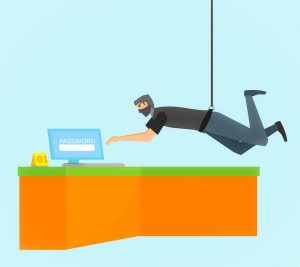Technology is advancing further and further as the days go by. It is hard to keep up if you are an ordinary person but the majority of us increasingly rely on technology in our day-to-day. Our home is full of various technological knick-knacks from cooking, entertainment, comfort, to communication, you name it. You can even shop or do your banking online too. Imagine how many hours you save from doing all the mundane things by yourself with the help of technology.
 As we increase our dependence on these technological wonders, we also share more and more personal data on the web that may be at risk of hacking or data theft in the absence of reliable security measures. And we should not only be wary of nameless hackers but even of certain government agencies too.
As we increase our dependence on these technological wonders, we also share more and more personal data on the web that may be at risk of hacking or data theft in the absence of reliable security measures. And we should not only be wary of nameless hackers but even of certain government agencies too.
WikiLeaks has offered to help the likes of Google and Apple identify the software holes used by purported CIA hacking tools - and that puts the tech industry in something of a bind.
While companies have both a responsibility and financial incentive to fix problems in their software, accepting help from WikiLeaks raises legal and ethical questions. And it's not even clear at this point exactly what kind of assistance WikiLeaks can offer.
THE PROMISE
WikiLeaks founder Julian Assange said Thursday that the anti-secrecy site will help technology companies find and fix software vulnerabilities in everyday gadgets such as phones and TVs. In an online news conference, Assange said some companies had asked for more details about the purported CIA cyberespionage toolkit that he revealed in a massive disclosure on Tuesday.
(Via: http://www.wrcbtv.com/story/34704071/wikileaks-aid-on-cia-software-holes-could-be-mixed-blessing)
Seems like straight out of the movies, right? True! The alarming thing about this is that it is not a movie and our data is indeed at risk from people whom we thought should be protecting us in the first place.
It also does not help that the budget on many services is being cut down, proper maintenance or even a much-needed upgrade of computer systems are far from the horizon. And worse, it is a reality in most U.S. states.
Many of the state of Minnesota's data centers are vulnerable to both intruders and water damage. The state's crack cybersecurity team doesn't have a night shift. And the only people who know how to maintain code handling billions of dollars in state transactions are near retirement — or long past it.
"Things haven't changed that much," said Mike Arlett, a retired 79-year-old programmer who still comes into work periodically because he's one of the few people left who can update the venerable COBOL code he's worked on for decades. "It's basically the same as it was many, many years ago. It's just running on a bigger, faster platform."
These cybersecurity risks and antiquated technology are front and center at the Legislature this spring, where lawmakers are considering whether to spend more than $100 million bringing the state's software into the current decade.
We should all take data security seriously because criminals have also leveled up their game and they can easily mess with your life with just a few clicks of a button. Learn the computing language since you use gadgets like smartphone, tablets, computers, laptops, and SmartTVs on a daily basis. An understanding of how they work means you’d also be able to better take care of them and make use of effective and up-to-date data security measures.
Moreover, these are not just your only causes for concern but as well as a more pressing and entirely sensitive item we use regularly.
We see it in the news almost every day: Despite being PCI (Payment Card Industry) compliant, a company or a government agency has been breached, putting millions of financial records and personal data into the hands of hackers and ultimately, on the black market. The gaming industry is a high profile, payment transaction-rich environment living on borrowed time. With last October’s adoption of EMV (Europay, MasterCard and Visa) and its credit and debit chip cards in the USA, card-not-present (e-commerce/online) fraud will likely increase dramatically over the next three years, as evidenced in European countries, following wide EMV adoption.
When it happens in the gaming industry, and according to experts it will, who will pay for it? Lisa Monaco, US Homeland Security advisor to President Obama, stated, "There are two types of merchants in this arena; those that have been hacked and those that will be hacked." There may be one more type; those that have been hacked but are unaware yet. Bad publicity and a loss of consumer trust come standard with a large data breach, but there is also the financial impact, which could amount to thousands or millions of dollars lost.
(Via: https://www.gamblinginsider.com/in-depth/2942/advanced-guard-the-importance-of-data-security)
Even if most data loss issues are external, there is one that does not have to do with anybody else – a hard drive failure. Important files may be lost and can make life difficult for you for a while. However, all is not lost and you can recover your data with a few tricks of the trade or with the help of some who is handy with computers.
The blog article Cyber Safety and Security: How Safe Are You And Your Data Online? See more on: The IANAA Blog
source https://www.iamnotanartist.org/cyber-safety-and-security-how-safe-are-you-and-your-data-online/

No comments:
Post a Comment